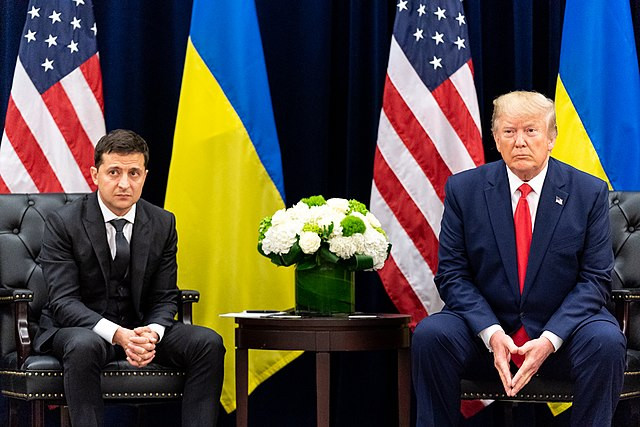The United States and Ukraine have reached an agreement on a broad economic deal involving Ukraine's rare earth minerals, paving the way for a formal signing during Ukrainian President Volodymyr Zelensky's upcoming visit to Washington, according to senior Ukrainian officials. The deal, which has undergone weeks of negotiations, marks a significant development in Kyiv's efforts to secure continued U.S. support amid ongoing tensions with Russia.
President Donald Trump, addressing reporters in the Oval Office, described the agreement as "a very big deal," saying, "It could be worth a trillion dollars. It could be whatever, but it's rare earths and other things." Ukrainian officials have framed the deal as a step toward solidifying economic cooperation with the U.S., though it does not include explicit security guarantees.
The finalized agreement establishes a joint fund through which Ukraine will contribute 50% of proceeds from the future monetization of its state-owned mineral resources, including rare earth elements, oil, and gas. However, a contentious provision proposed by the Trump administration-demanding $500 billion in mineral revenue as repayment for U.S. wartime aid-was ultimately dropped after pushback from Kyiv.
While the deal secures Ukraine's strategic partnership with Washington on natural resources, it does not immediately address the country's need for continued military assistance. "The minerals agreement is only part of the picture," said Olha Stefanishyna, Ukraine's deputy prime minister. "We have heard multiple times from the U.S. administration that it's part of a bigger picture." Future weapons shipments remain under discussion, and Kyiv is hoping the agreement will bolster its case for sustained military support from Washington.
The deal comes after a period of escalating rhetoric between Trump and Zelensky. Last week, Zelensky rejected Washington's initial proposal, calling it "not serious" and criticizing the administration's lack of security assurances. Trump responded by calling Zelensky "a dictator without elections," escalating tensions between the two leaders. However, a breakthrough was achieved after a three-day visit to Ukraine by Trump's special envoy to Ukraine and Russia, retired Lt. Gen. Keith Kellogg.
Zelensky, expected to travel to Washington on Friday, will meet with Trump to discuss additional terms, including potential long-term military cooperation. Trump, who has been critical of U.S. aid to Ukraine, has insisted that European nations bear a greater share of the financial burden.
Ukraine is home to one of Europe's largest deposits of critical minerals, including lithium, titanium, and scandium-materials essential for advanced technologies such as electric vehicle batteries, wind turbines, and aerospace components. According to the Institute of Geology, Ukraine also possesses lanthanum and cerium, used in lighting and television displays, as well as erbium and yttrium, which have applications in nuclear energy and lasers.
The estimated value of Ukraine's mineral wealth exceeds £12 trillion, according to Forbes Ukraine. However, a significant portion-around £6 trillion worth-is located in the eastern regions of Luhansk, Donetsk, Zaporizhzhia, and Kherson, territories that Russia illegally annexed in September 2022.
In 2021, Zelensky introduced tax incentives and investment opportunities to attract international mining projects, but these efforts were suspended following Russia's full-scale invasion in early 2022. Anticipating Trump's transactional approach to foreign policy, Zelensky made resource development a core component of his proposed "victory plan," which was presented to Trump last year.





